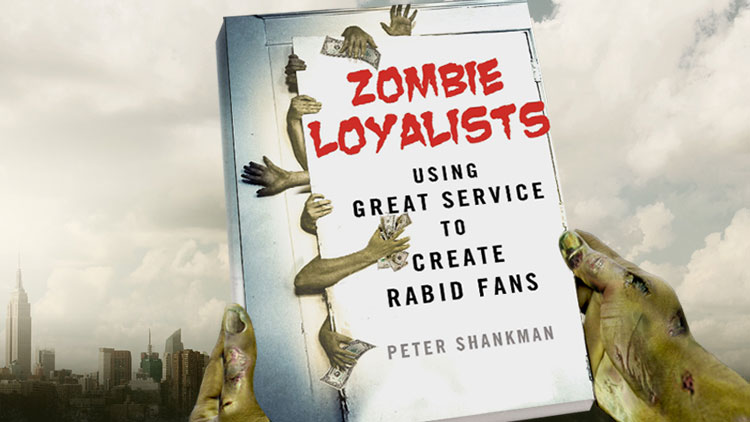In his immensely readable new book, Zombie Loyalists: Using Great Service to Create Rabid Fans, customer service guru Peter Shankman coins a new term: “the Zombie Loyalist.” Perhaps he is latching onto the latest pop culture reference. Maybe he is simply a sci-fi fan. Either way, by introducing the concept of the zombie into the business how-to book genre, Shankman has struck pure gold.
The idea of the zombie loyalist is not arbitrary. In fact, in Shankman’s casual and chatty narrative, the introduction of the zombie makes perfect sense. A zombie loyalist is a customer who is so bowled over by a company’s above and beyond brand of customer service that they go one step further than brand loyalty—he or she goes out of their way to preach the gospel of that company, through social media and actual word-of-mouth to convert others to patronize that business. Zombies. Get it?
Shankman uses tons of real life examples to illustrate his thesis, from his air travel experiences to the time he tweeted to Morton’s Steakhouse that he was hungry—and was greeted with a gourmet meal, complete with appetizer, bread and silverware.
Shankman illustrates the disconnect between corporate CEOs who are so flanked by yes-men that they remain unaware of just how disappointed customers are to the experiences of actual boots-on-the-ground customer service representatives. And it isn’t pretty, especially coupled with the fact that in this modern age of consumerism, customers have come to expect lackluster service. They expect delayed, cramped flights. They expect to be overcharged. They expect a faceless corporate conglomerate uninterested in the customer experience.
This is where Shankman’s expertise comes into play. The door has been left wide-open for businesses to deliver exemplary service—or even just satisfactory service that would be perceived as exemplary based on customers’ low expectations. He outlines ways to so wow clients that they not only consider only your business for meeting theier needs, but are so filled with infectious enthusiasm that they actively work as unpaid salespeople, working to convert their friends into your clients as well.
Shankman’s narrative is told in such a way that readers will enjoy the ride he takes them on, but they can relate to it so well that they will want to adapt his expertise to different aspects of their lives. This book can serve as a manual not just for customer service representatives, but for salespeople looking to expand their business, CEOs aiming to increase their bottom line, and anyone in a service-related industry who wants to help incite a happy-customer-zombie apocalypse.

































